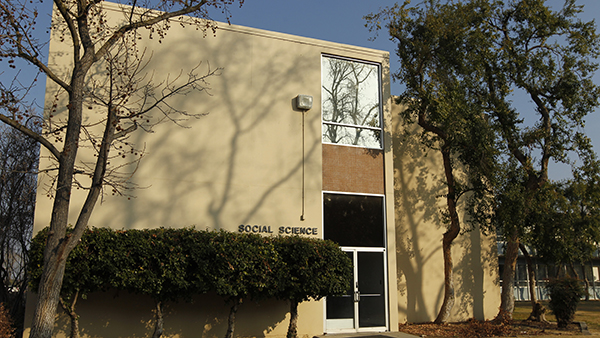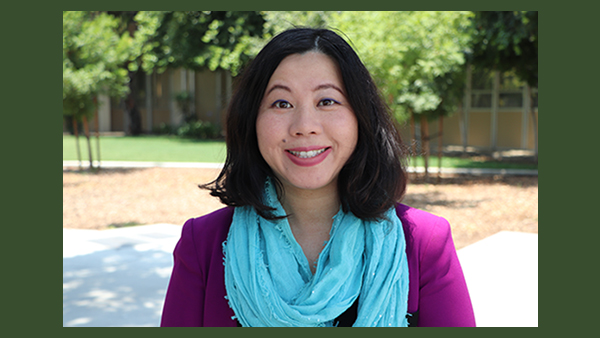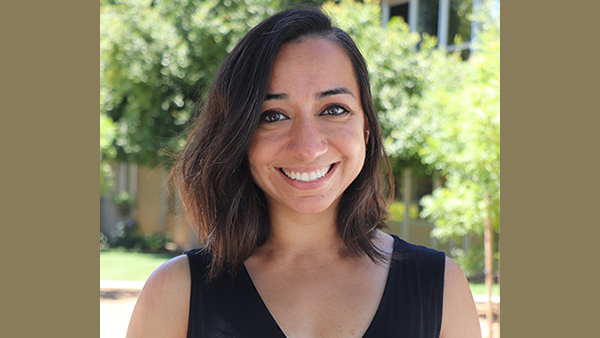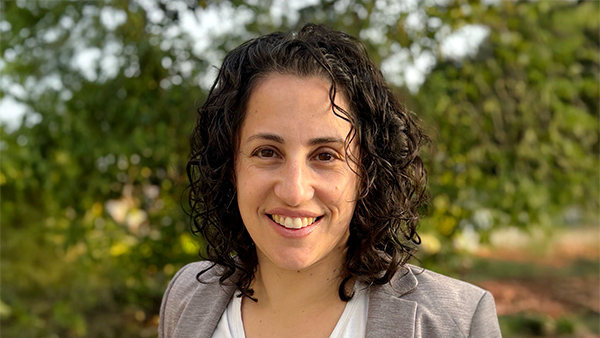|
Get to know newly promoted faculty within the College of Social Sciences.
Dr. Jenny Banh earned early promotion to professor in the Asian American Studies (ASAM) Program and Anthropology Department.
She currently serves as the ASAM program coordinator and has overseen the creation of a new degree program in Asian American and Asian Studies. Since she arrived on campus in 2016, she has earned two teaching awards and four service awards after also creating 25 new ASAM courses and three certificates.
She currently teaches classes tied to Asian and Asian-American film and video, anime, graphic novel, K-Pop and cultural studies, and has taught prior classes in anthropological theory and methodology. Her research interests have focused on similar areas, as well as cultural anthropology and barriers and bridges for Southeast Asian American students.
Working with the community, she has conducted, coded and transcribed over 40 oral histories of Southeast Asian Americans (Hmong, Laotian, Filipino, Vietnamese, Mien, Cambodian) who live in the Central Valley. These oral histories were donated to the campus library to create the Central Valley Southeast Asian American Successful Voices Archive.
She earned her master’s and doctoral degrees in anthropology from the University of California, Riverside, and a master’s degree in cultural studies from Claremont Graduate University.
Dr. Amber Crowell earned early promotion to professor in the Sociology Department.
She currently teaches classes in quantitative research methods and social inequality and has taught prior classes on demography, race and ethnicity, and statistics since she arrived on campus in 2016.
Her recent publications feature innovative methods for residential segregation analysis, including a co-authored book, “Racial and Ethnic Residential Segregation across the United States.” She has also written other publications that focus on evictions, rent exploitation, and other inequalities in rental housing.
She is the principal investigator and founding director of The Mark Fossett Lab, a National Science Foundation-funded project to create boundary maps for neighborhoods in 1940 and analyze residential segregation outcomes in urban areas using the 1940 census.
She is a founding co-director of the Center for Community Voices at Fresno State, which supports projects led by Central Valley community leaders, and has served as the evaluator of the Advancing Fresno County Guaranteed Income program.
The Texas native earned her master’s and doctoral degrees in sociology from Texas A&M University.
Dr. Megan Pronovost earned early tenure and promotion to associate professor in the Child and Family Science Department.
She has taught classes in early childhood development and learning since joining the campus faculty in 2019.
Her research has investigated the origins and nature of social group-based inferences, and how environmental factors shape these inferences throughout early childhood. Specifically, she investigates the types of characteristics that infants expect members of a social group to share, such as food preferences and social behaviors.
Additionally, her research investigates how environmental influences, such as how parents discuss social groups with their children, as well as other environmental factors, impact the beliefs and inferences that children form about social groups.
She earned her master’s and doctoral degrees in psychological sciences with an emphasis in developmental psychology from the University of California, Merced, where her research was primarily related to the development of social cognition from infancy to early childhood.
Dr. Dvera Saxton earned promotion to professor in the Department of Anthropology, where she specializes in topics tied to labor, food and farming systems, the environment, health, disability, activist methodologies and social justice.
As department chair, Saxton currently teaches classes tied to ethnographic methods and fieldwork and the anthropology of health, illness and healing, and environmental anthropology. She joined the Anthropology Department in 2014. She serves on the campus California Native American Graves Protection and Repatriation Act committee.
Her current research explores the lived, embodied, and place-based experiences of disabled residents in local, rural communities. Her previous work and publications examined farmworker communities and pesticide exposure, and the status of food and farmworkers in the Pacific U.S. Coast during the COVID-19 pandemic.
She is also a Senior Atlantic Fellow for Equity in Brain Health with the Global Brain Health Institute.
She earned her doctorate in anthropology, race, gender, and social justice from American University, Washington, DC.
Dr. Julia Shatz earned tenure and promotion to associate professor in the History Department.
Since her arrival on campus in 2018, Shatz has taught courses on medieval and early modern Middle East empires, the modern Middle East, Israel and Palestine, world history and gender, sex and family in the Middle East, as well as historical research and writing.
Her research focuses on the modern Middle East, British Empire and the history of colonialism, transnational history, history of childhood and child welfare, and global humanitarianism. Her current projects look at childhood and child welfare in 20th-century Palestine.
She has published research on the importance of Palestinian Arab nurses nearly a century ago in Mandate Palestine, and the history of a child services center in East Jerusalem started by the American Colony Aid Association in the 1920s. Her recent publications include articles on the Palestinian juvenile delinquency system in the 1940s and infant welfare clinics in the 1920s.
She earned her master’s and doctoral degrees in history from the University of California, Berkeley.
|






